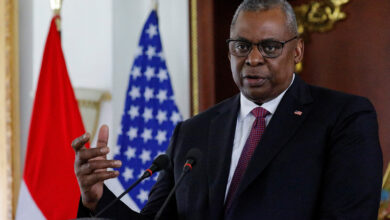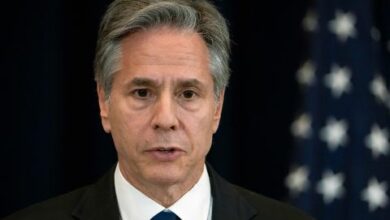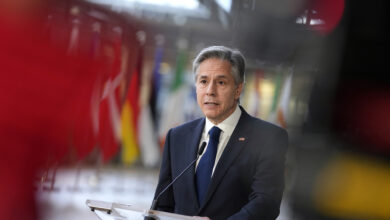The attempted assassination of a representative of the United States Congress has gripped the consciousness of America.
On Saturday 8 January, Congresswoman Gabrielle Giffords, a Democrat representing Arizona's eighth Congressional district, was shot in the back of the head at close range while she was meeting with constituents inside a supermarket in Tucson at an open event called "Congress on Your Corner."
After shooting Giffords, the gunman opened fire on the crowd. In all, 20 people were shot and six were killed. The dead include Giffords’ aide, the chief federal judge of Arizona, a nine year-old girl and three people in their late seventies.
The shooter, Jared Lee Loughner, was taken down by two bystanders when he stopped to reload. While the motivation for the attack remains unclear, the picture emerging of Loughner is of a severely disturbed 22 year old with mental health issues. YouTube videos and other internet postings under his name suggest an obsession with bizarre anti-government grievances, including ramblings about currency policies and language control through grammar.
In September, Loughner was suspended from Pima County Community College after five run-ins with campus police for disruptive behavior. One student who attended class with him wrote a premonitory email to friends saying, "We have a mentally unstable person in the class that scares the living crap out of me. He is one of those whose picture you see on the news, after he has come into class with an automatic weapon."
After the shooting, Loughner's mug shot–a haunting picture of a man with wild eyes and a ghastly grin–was plastered on the front pages of newspapers across the country.
America, watching in horror, came to a standstill.
The House of Representatives’ entire legislative agenda was postponed for the week. The following Wednesday, 26,000 people attended a memorial service at the University of Arizona where President Barack Obama, Arizona Governor Jan Brewer, Homeland Security Secretary Janet Napolitano, and Attorney General Eric Holder all spoke.
It wasn't the first time an elected official had been targeted in America but it struck a painful chord.
The day after the shooting, Pima County Sheriff Clarence Dupnik helped spark a national debate when he suggested Loughner may have been influenced by right-wing political rhetoric. "The rhetoric about hatred, about mistrust of government, about paranoia of how government operates and to try to inflame the public on a daily business, 24 hours a day, seven days a week, has impact on people, especially who are unbalanced personalities to begin with."
Critics have pointed to a controversial map issued by former Republican vice-presidential nominee Sarah Palin in March that featured crosshairs targeting various Democratic districts for the 2010 midterm elections, including Giffords’ own. In a tweet at the time, Palin urged supporters: "Don’t Retreat-RELOAD!"
Giffords responded in an interview on MSNBC soon afterwards: "The way that she has it depicted has the crosshairs of a gun sight over our district. When people do that, they’ve got to realize there’s consequences to that action."
Giffords ended up narrowly winning re-election in November against her Tea Party-backed Republican opponent Jesse Kelly, a former Marine who served in Iraq. In June, Kelly promoted a campaign event on his website urging his supporters: "Get on Target for Victory in November. Help remove Gabrielle Giffords from office. Shoot a fully automatic M16 with Jesse Kelly."
Along with the debate about political rhetoric, the attack has refocused attention on gun safety laws around the country. Even though Loughner was expelled from a community college pending a psychological evaluation, he was nevertheless able to walk into a Tucson sports shop in November, pay $550 and walk out with a Glock 9mm semi-automatic.
Arizona is one of only three states–along with Alaska and Vermont–that allow individuals to carry concealed handguns without a permit. The Arizona legislature is now considering two new measures to further loosen gun control: One would prevent schools from barring concealed weapons on campuses for gun owners with permits. The other would specifically allow college faculty members to carry concealed weapons on campus.
In the meantime, the country remains fixated on Giffords' condition as doctors say she continues to make remarkable progress in her recovery. Her battle to stay alive provides some glimmer of hope.
It remains to be seen what the long-term effects of the Tucson shooting will be on American political discourse. One thing is clear: It will not be forgotten.
Sharif Abdel Kouddous is a producer for the independent TV/radio show Democracy Now! Some of the material for this piece is drawn from interviews broadcast on the program.




